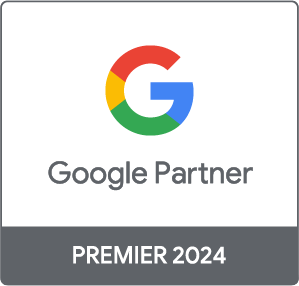Senior Data solution architect
Content Security Policy (CSP): Is your web security blocking your data?
Senior Data solution architect
Today, content security policies (or CSPs) are considered indispensable to protecting your websites and applications against potential attacks, such as the injection of malicious scripts.
However, while they are necessary, they can sometimes unintentionally block data that is being sent to your analytics and marketing platforms, which creates gaps in your data collection—an unfortunate problem that is often recognized far too late!
This article will help you to better understand CSPs and their issues, as well as learn how to detect these problems and handle them correctly.
Understanding CSPs
CSPs are rules implemented by webmasters or security teams to control the execution of authorized resources on a site or application. They generally put restrictions on:
- the domains that can change scripts
- the authorized methods for transmitting data
When properly configured, content security policies represent a robust shield for protecting your users and their data.
Issues with CSPs and data collection
Problems arise, however, when a strict CSP unintentionally blocks legitimate scripts or requests from marketing data collection and processing platforms, such as Google Analytics, Meta, or Reddit. The result:
- Significant loss of data
- Bias in the analysis of marketing performance
- Increased difficulty in making decisions based on data
Examples of problems related to CSPs
Additional complexities with third-party services
When you use third-party services such as payment systems, chatbots, extranets, or other secure spaces, management of content security policies becomes even more complex. Each partner can have its own rules and lists of URLs, which often are not documented or can change over time without warning. This reality greatly complicates the work of keeping CSPs updated and increases the risk of unintentional blocking, thereby leading to major losses in visibility when it comes to performance and security.
Integration of new partners
When adding a new technology partner, such as Google or Meta, it can happen that these partners require specific access that isn’t covered in an existing CSP. A misconfigured or badly integrated partner can quickly become a major source of CSP violations and associated data losses.
SDK updates and endpoint changes
Technology partners can update their software development kits (or SDKs) or change their data collection endpoints at any time without warning. This can lead to sudden blockages and significant losses of data, especially when these new URLs aren’t included in existing CSPs.
Example: Google Consent Mode (GCM)When implementing Google Consent Mode (GCM), the SDK kits for Google Analytics, Google Ads, and Google Campaign Manager use new addresses such as googlesyndication.com. If these new URLs aren’t explicitly authorized (allow-listed) in your CSP, your data collection and behavioural modelling won’t be activated. |
Detecting errors caused by CSPs
Here’s a simple yet effective method that will allow your analysts to quickly detect blockages caused by content security policies:
1. Capture browser errors
Use JavaScript to capture errors related to CSPs by adding a global listener:
|
window.addEventListener('securitypolicyviolation', (e) => { // Send to your tracking tool or directly to GA4, BigQuery, etc. }); |
2. Log errors
Send these data to Google Analytics 4, BigQuery, or a centralized logging service. This will allow you to quickly analyze violations and take proactive steps.
3. Automated notifications and alerts
Establish an alert system (by email or via Slack, Teams, or something else) when new errors related to CSPs are detected. This allows you to act immediately before the data loss becomes significant.
CSP violation detection alternatives
There are other options for monitoring data collection problems caused by CSPs. “Content-Security-Policy-Report-Only” mode lets you record violations without actually blocking resources. There are also native features in infrastructure surveillance solutions, such as Datadog, that enable fast integration for advanced analysis.
Best practices for managing your CSPs
By adopting the approaches listed above, you can effectively protect your website while ensuring optimal data collection, which is essential to your company’s marketing performance and decision-making.
- Collaborate with your security team right from the start to define a content security policy that is balanced: sufficiently ample to ensure security without being too restrictive to avoid unfortunate blockages.
- Regularly verify CSP reports to quickly identify new issues.
- Establish continuous, automated monitoring of CSP violations in order to receive instant alerts.
Ensure you have a clear communication process in place with your partners to anticipate major changes in their software development kits (SDKs) or endpoints. - Be especially vigilant when integrating complex third-party services, such as payment systems, chatbots, and other secured spaces.
Adviso’s Data and Experience team can help you prevent data loss and strengthen your security. Contact our experts today to define CSP instructions that are adapted to your technologies or to implement a detection and alert system.


.png)

-3.png)









